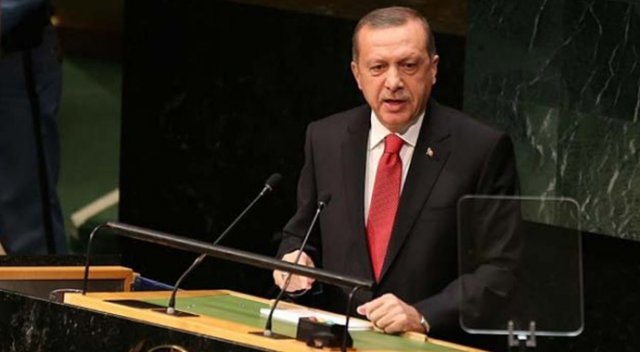
Eurasianet, September 20, 2017
Bradley Jardine
A new government education policy that gives a special status for the Russian language in Armenia's schools has provoked a backlash, the latest flashpoint in a tense struggle over the status of Russian in the country.
The proposal by Armenia's Ministry of Education and Science, developed on behalf of Prime Minister Karen Karapetyan, was published on e-draft.am, a government portal allowing public scrutiny over legal drafts prior to their adoption.
The policy doesn't necessarily change anything about the way foreign languages are taught in Armenia, but it does restate the primary place given to Russian. “[T]he educational system of the Republic of Armenia needs reforms that will enable citizens to master several foreign languages such as Russian, one or more European (English, French, German, etc.) and Eastern (Arabic, Persian, Chinese, etc.) languages,” the policy statement reads.
That was too much for some in Armenia. Pro-Western activist David Sanasaryan told reporters that the unstated aim of the proposal is to lay the groundwork for Russian becoming an official language in the country.
“The Russian side has always been sincere, they have always clearly expressed their desires and aspirations – they want to provide a high-level of knowledge of the Russian language in the post-Soviet space” he said.
The rushed nature of the document has also been a cause for concern. Expert on higher education Samvel Karabekyan noted stylistic and spelling errors in the draft. The mistakes, he says, along with the fact a previous document was presented only last month, indicate that the amendment appears to have been hastily introduced.
“People have a justifiable opinion that this [draft] was either an order or a political necessity,” Karabekyan said.
Supporters of the policy, however, argue that Russian deserves special status because of its historic role in the country's scientific research, as well as its current geopolitical situation.
“Our specialized literature in universities and libraries is predominantly in Russian,” said Minister of Education and Science Levon Mkrtychyan, at the “Armenia-Diaspora” conference in Yerevan arguing that emphasizing the language will boost the country’s scientific development.
Backers also say that it will allow deeper integration with Armenia’s partners in the Russian-led Eurasian Economic Union.
Ashot Arshakyan, head of the general education department of the Ministry of Education and Science, said the proposal will “improve the quality of teaching” but will not give Russian special status.
Some are unconvinced by the economic rationale. Anahit Bakhshyan, a member of the opposition “Yelk” faction of the Council of Elders and former deputy director of the National Institute of Education, told Radio Azatutyun that English is the language of science, not Russian.
“If the authorities want to achieve revival of the economy and science, it would be better to focus on English, since it is a well-known fact that most of the world’s scientific materials are in that language,” Bakhshyan said.
Russia has been putting economic pressure on the country in recent months. On July 12, the Russian Duma adopted a law allowing drivers from Eurasian Union countries to work as commercial drivers in Russia, but only if those countries recognize Russian as an official language.
Duma Speaker Vyacheslav Volodin emphasized the point on July 17 during a meeting with his Armenian counterpart Ara Babloyan, saying: “Make it [the Russian language] official, and then the law would automatically apply to Armenia as well.”
Armenian social media has also been active, with Facebook users changing their profile pictures to images of letters from the Armenian alphabet.
But Mkrtychyan insists that concerns are ill-founded. “The Armenian language will always remain the only official language in Armenia,” he said. “Any discussion with political overtones has a false agenda.”
No comments yet.
- AFGHAN PRESIDENT OUTLINES U.S. STRATEGY FOR AFGHANISTAN Asia - Pacific 21.09.2017
-
 ERDOĞAN WARNS WORLD OF IRREVERSIBLE DAMAGE KRG REFERENDUM WILL CAUSE
Iraq
21.09.2017
ERDOĞAN WARNS WORLD OF IRREVERSIBLE DAMAGE KRG REFERENDUM WILL CAUSE
Iraq
21.09.2017
- FRENCH WIND POWER CAPACITY SEEN OVERTAKING UK, SPAIN BY 2030 - WINDEUROPE Europe - EU 21.09.2017
- CATALONIA REFERENDUM: TENSIONS HIGH AHEAD OF PROTESTS Europe - EU 21.09.2017
- MEETING POLISH PM, BULGARIA'S BORISSOV REPEATS CALL FOR CLOSING EU BORDERS The Balkans 21.09.2017
-
25.01.2016
THE ARMENIAN QUESTION - BASIC KNOWLEDGE AND DOCUMENTATION -
12.06.2024
THE TRUTH WILL OUT -
27.03.2023
RADİKAL ERMENİ UNSURLARCA GERÇEKLEŞTİRİLEN MEZALİMLER VE VANDALİZM -
17.03.2023
PATRIOTISM PERVERTED -
23.02.2023
MEN ARE LIKE THAT -
03.02.2023
BAKÜ-TİFLİS-CEYHAN BORU HATTININ YAŞANAN TARİHİ -
16.12.2022
INTERNATIONAL SCHOLARS ON THE EVENTS OF 1915 -
07.12.2022
FAKE PHOTOS AND THE ARMENIAN PROPAGANDA -
07.12.2022
ERMENİ PROPAGANDASI VE SAHTE RESİMLER -
01.01.2022
A Letter From Japan - Strategically Mum: The Silence of the Armenians -
01.01.2022
Japonya'dan Bir Mektup - Stratejik Suskunluk: Ermenilerin Sessizliği -
03.06.2020
Anastas Mikoyan: Confessions of an Armenian Bolshevik -
08.04.2020
Sovyet Sonrası Ukrayna’da Devlet, Toplum ve Siyaset - Değişen Dinamikler, Dönüşen Kimlikler -
12.06.2018
Ermeni Sorunuyla İlgili İngiliz Belgeleri (1912-1923) - British Documents on Armenian Question (1912-1923) -
02.12.2016
Turkish-Russian Academics: A Historical Study on the Caucasus -
01.07.2016
Gürcistan'daki Müslüman Topluluklar: Azınlık Hakları, Kimlik, Siyaset -
10.03.2016
Armenian Diaspora: Diaspora, State and the Imagination of the Republic of Armenia -
24.01.2016
ERMENİ SORUNU - TEMEL BİLGİ VE BELGELER (2. BASKI)
-
AVİM Conference Hall 24.01.2023
CONFERENCE TITLED “HUNGARY’S PERSPECTIVES ON THE TURKIC WORLD"









